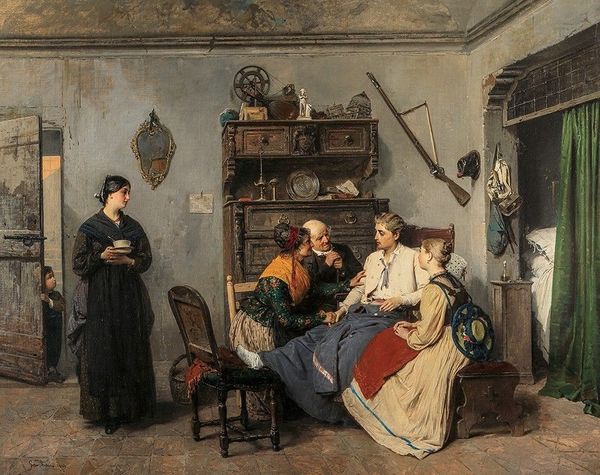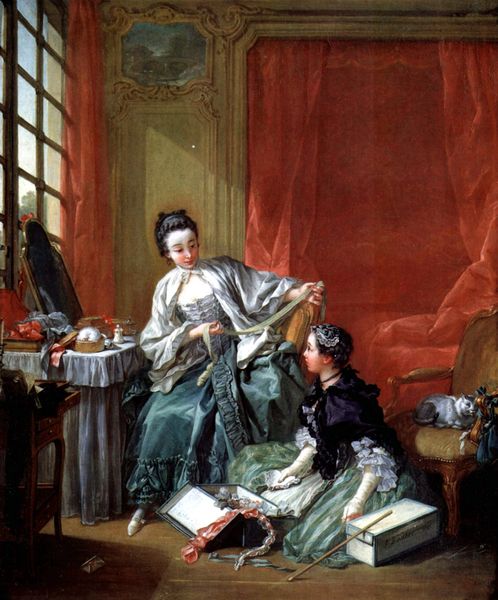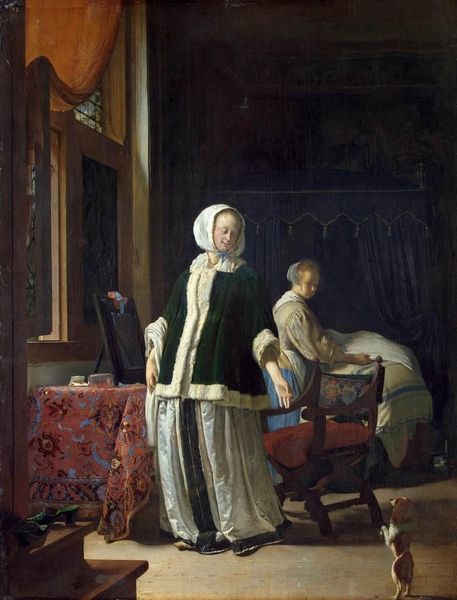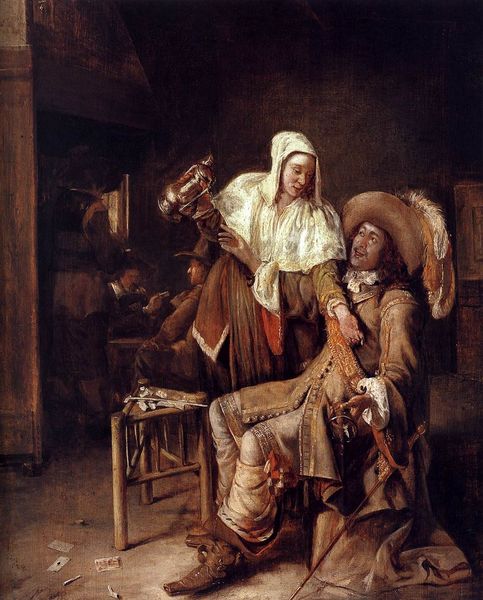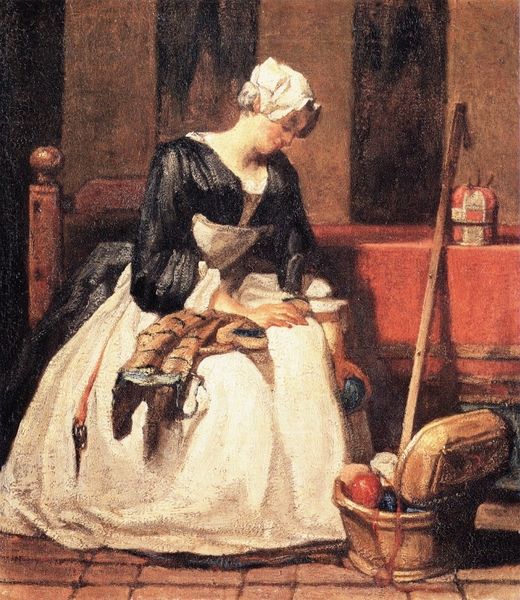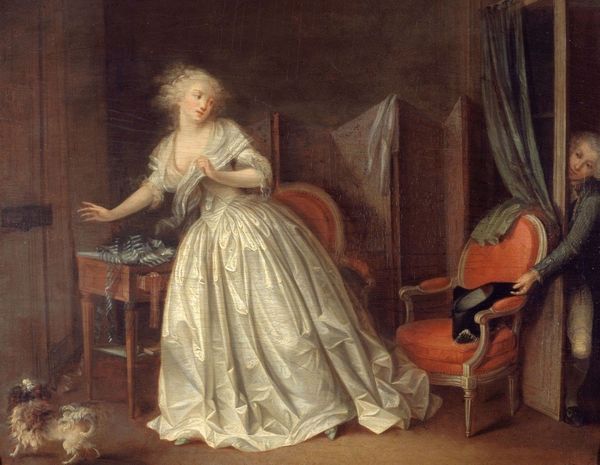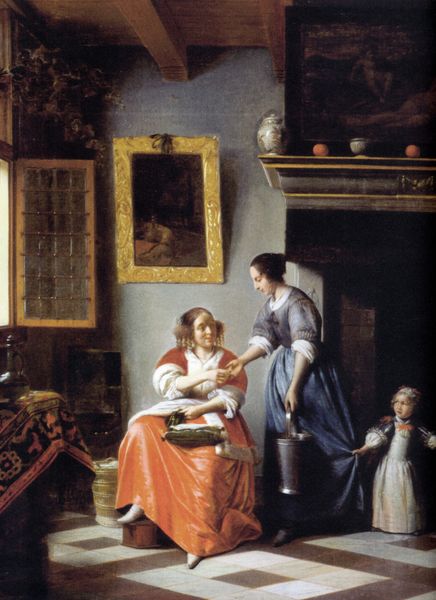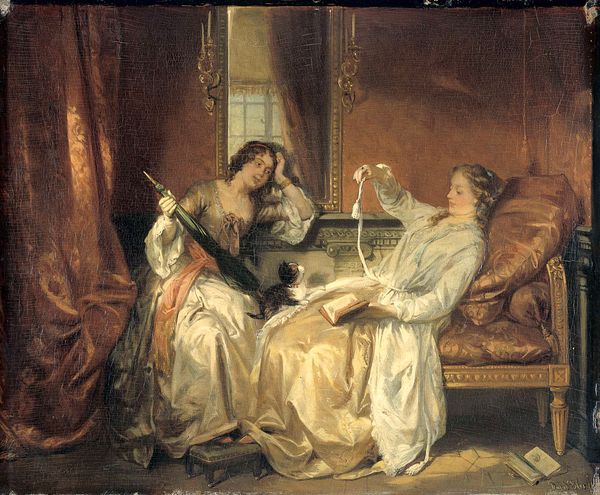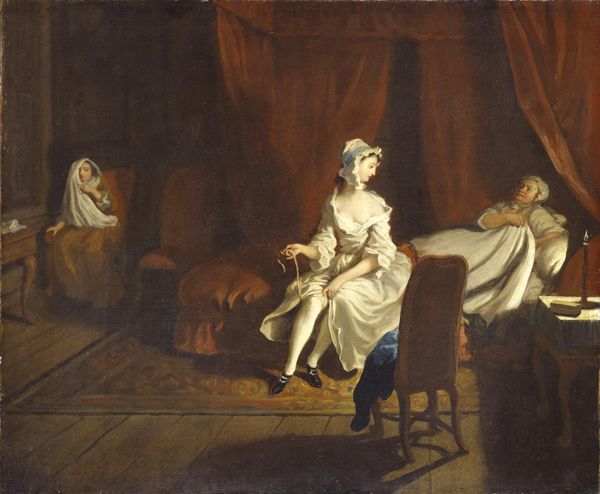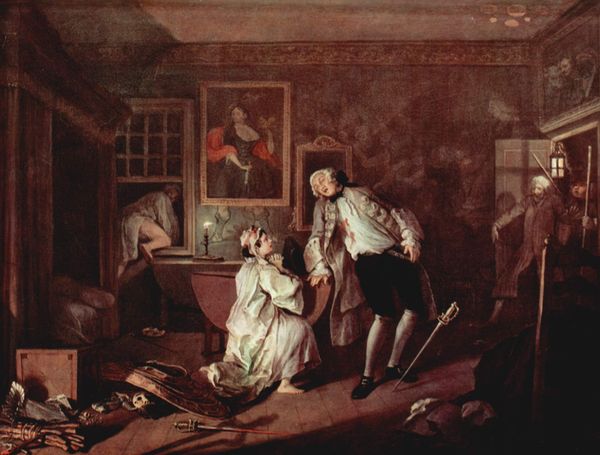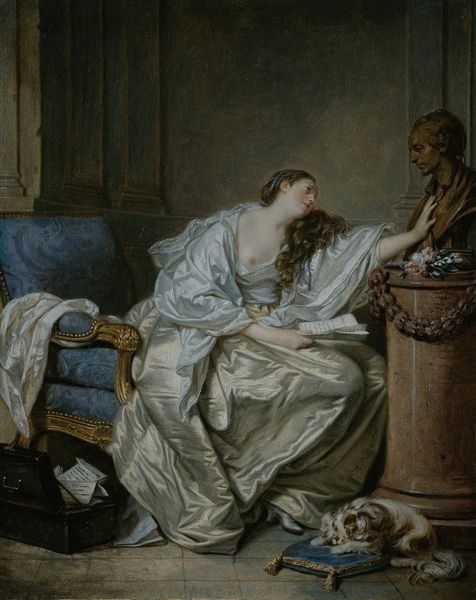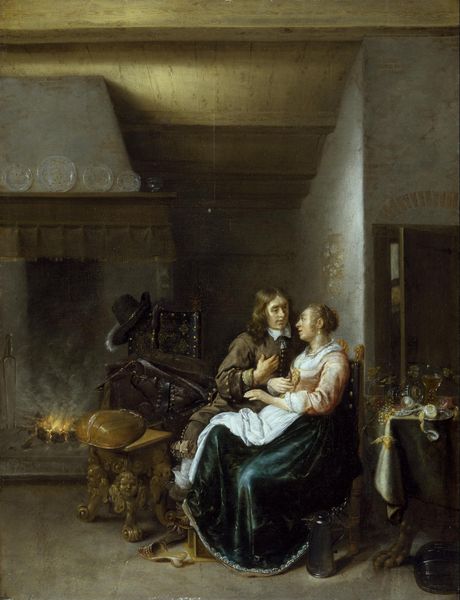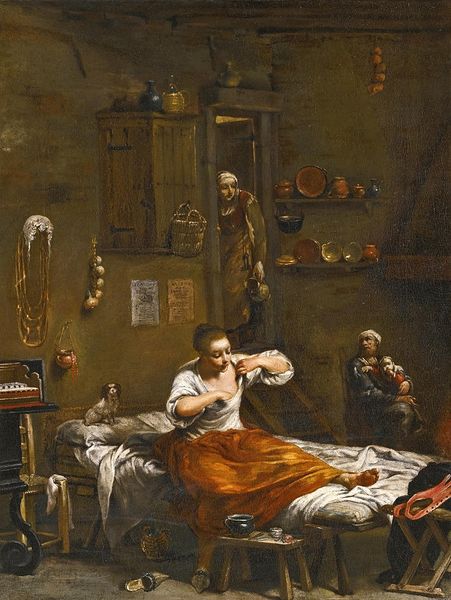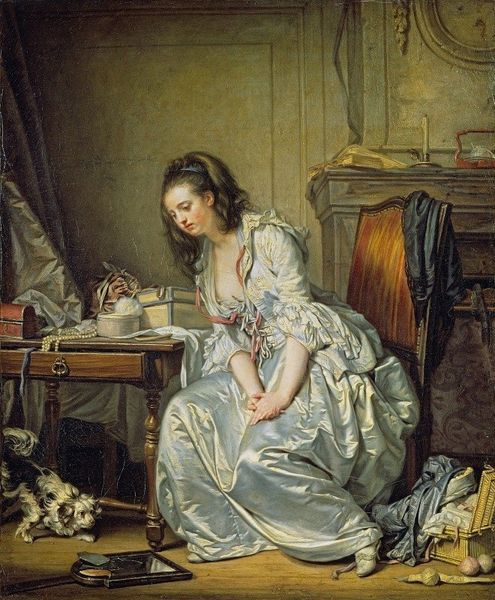
painting, oil-paint
#
narrative-art
#
fancy-picture
#
painting
#
oil-paint
#
oil painting
#
intimism
#
genre-painting
#
nude
#
erotic-art
#
rococo
Dimensions: 52.5 x 66.5 cm
Copyright: Public domain
Curator: Oh, what a decadent scene! It practically oozes luxury. Editor: Indeed. What we’re looking at is François Boucher’s painting, "The Toilet," from 1742. It resides in the Thyssen-Bornemisza Museum in Madrid. Boucher was a master of the Rococo, celebrated for these kinds of intimate, domestic scenes. Curator: Rococo to the core! Look at that lushness. The fabrics seem to flow like liquid light, and there's an almost playful quality with that voyeuristic figure peeking from behind the screen. It's incredibly opulent, but also intimate. Makes you wonder, doesn't it, what's really going on in the boudoir? Editor: Boucher’s paintings became highly sought-after during the reign of Louis XV, capturing a specific taste for decorative art amongst the aristocracy. Beyond mere aesthetics, it also portrays the culture of display and spectacle during that era, and these paintings essentially catered to a specific market. They reveled in artifice and beauty. Curator: There's a delicate dance happening. That cat, draped languidly at the young lady's feet – pure poetry! And it’s all a deliberate construct; even her seemingly casual pose feels carefully staged. It’s like peeking behind the velvet curtain of a private performance, isn't it? A subtle story unfolds within its ornate frame, ripe with suggestion. It invites a narrative where beauty, flirtation, and hidden gazes are at play. Editor: Exactly. Though such pieces today might raise eyebrows about the male gaze and the objectification of women, consider the social conditions that actually brought them into being. These images circulated widely among specific viewers. Their desire actually fueled artistic trends and movements like Rococo itself. This painting prompts reflection about art's entanglement with patronage, power and, of course, politics. Curator: Absolutely! So much more than meets the eye, beyond the silks and powdered wigs. Editor: I completely agree, a crucial reflection on power, art and taste during the Rococo period.
Comments
No comments
Be the first to comment and join the conversation on the ultimate creative platform.
